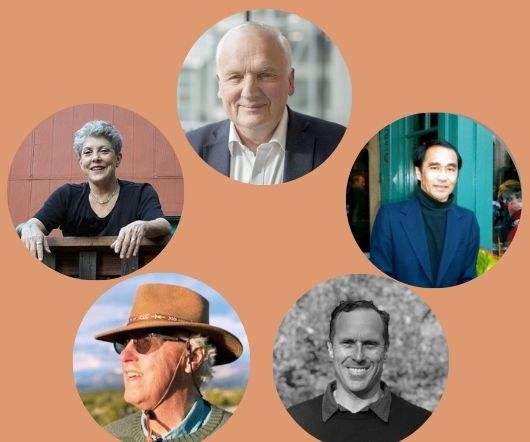With 191 country signatories to the Paris Climate Agreement now hard at work in the race to zero carbon by 2050, much of the heavy lifting in ecosystem sustainability falls on the shoulders of the world's densely populated urban centers. This conversation considers how today's AI-enabled simulation media, such as AR/VR, can be effectively applied to accelerate learning, understanding, training, and solutions-modeling to sustainability planning and design.
In this session, participants will see how science data from such sources as NASA and NOAA, combined with local data inputs, can be used to both exponentially improve and accelerate net-zero carbon, climate positive and regenerative outcomes. Top-down professional planning and decision-making is a path well-trod, what could be possible and available when we can meaningfully engage broad-based "citizen-scientists?" When STEAM (science, technology, engineering, arts, mathematics) students can be directly engaged in contributing to the creation of smart, circular-city outcomes? When community members can be empowered "architects" of a "bottoms-up" planning approach, where citizens become stakeholders in circular-city projects and programs by interactively participating in immersive, experiential simulations? Can this new class of media technologies help tell powerful new climate change solutions stories and effect transformational change?
In this webinar you will learn:
- How science data rendered in immersive AR/VR can accelerate sustainability and climate change problem-solving in urban planning and design;
- How AI-data-driven 3D modeling and simulation technologies such as digital twinning and AR/VR can create new awareness and understanding among all stakeholders at all levels in creating smart sustainable communities;
- How any organization at any scale can benefit from AI analytics using science data to educate and skills-train for severe climate change/weather catastrophes (storms, floods, tornados, forest fires, etc.) with the greatest possible effect and scale;
- What the top benefits to any enterprise or public-sector institution for sponsoring STEAM student and citizen-scientist projects using immersive, interactive, experiential simulations.
This is a panel discussion you won't want to miss!
May 5, 2021 at 9:30 am PDT, 12:30 pm EDT, 5:30 pm GMT
Brought to you by:








Let's personalize your content